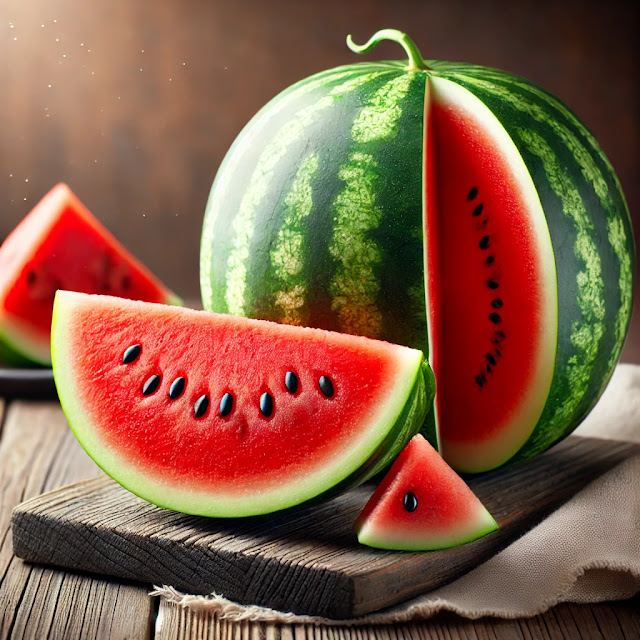Kumquat: The Tiny, Tangy Citrus with Surprising Health Benefits
Overview:
Kumquats are small, tangy citrus fruits with a unique twist—they’re eaten whole, including the skin! Known for their vibrant orange color and delightful sweet-tart flavor, kumquats are a perfect snack for citrus lovers and a flavorful addition to various dishes. These miniature fruits are not only tasty but are also packed with nutrients and health benefits.
Calories and Key Nutrients (per 100g):
A 100g serving of kumquats provides about 71 calories. Despite their small size, kumquats are rich in fiber, vitamin C, and vitamin A. The edible skin contains antioxidants that help reduce inflammation and boost immune function. Compared to other citrus fruits, kumquats are particularly high in fiber due to their skin, which supports digestive health and can aid in blood sugar control.
Health Benefits:
Kumquats offer numerous health benefits, primarily due to their high fiber and antioxidant content. The vitamin C in kumquats supports immune health, while the fiber aids digestion and helps maintain steady blood sugar levels. The antioxidants found in the skin can reduce inflammation and protect cells from damage. Regular consumption of kumquats may also support heart health by reducing cholesterol levels.
Proper Consumption Methods:
Kumquats are unique among citrus fruits as they’re eaten whole, including the skin. The skin has a sweet flavor, which balances the sourness of the flesh. They can be enjoyed raw as a snack or sliced and added to salads. Kumquats can also be candied, preserved, or used in sauces and marinades to add a tangy kick to dishes. In Korea, kumquats are sometimes enjoyed in tea or as a garnish in various recipes.
Tasty Ways to Eat Kumquat (Recipes):
A refreshing way to enjoy kumquats is in a citrus salad. Combine sliced kumquats with oranges, fresh mint, and a drizzle of honey for a bright and flavorful dish. Another popular option is kumquat marmalade, where the whole fruit is cooked down with sugar, making a delicious spread for toast. You can also add sliced kumquats to yogurt, granola, or even cocktails for an extra burst of flavor.
Cautions When Eating Kumquats:
While kumquats are generally safe, those with sensitive stomachs may experience discomfort due to their acidity. The fruit’s fiber content can also cause digestive issues if eaten in excessive amounts. Additionally, since kumquats are relatively high in natural sugars, those monitoring their sugar intake should consume them in moderation.
Comparing Kumquats to Other Fruits:
Compared to oranges, kumquats are much smaller and have a unique balance of sweet skin and tart flesh. Unlike most citrus fruits, kumquats are eaten whole, which provides additional fiber and antioxidants. While lemons and limes are more acidic, kumquats offer a milder, balanced flavor that is both refreshing and tangy.
Who Should Eat Kumquats and Who Should Avoid Them:
Kumquats are an excellent choice for anyone looking to increase their vitamin C and fiber intake. They’re particularly beneficial for people needing an antioxidant boost. However, those with acid reflux or other digestive issues should enjoy them in moderation due to their acidity and fiber content.
Interesting Stories or Facts:
Did you know kumquats have been cultivated in China for centuries and are a symbol of prosperity during the Lunar New Year? In ancient times, they were often given as gifts to bring good fortune. Today, kumquats are widely grown in Asia and have become popular worldwide as a refreshing citrus snack.
Kumquat Culture Around the World:
In China, kumquats are often displayed and gifted during the Lunar New Year as a symbol of good luck. In Japan, kumquats, called “kinkan,” are often eaten fresh or preserved. In Western countries, kumquats are sometimes used in holiday decorations due to their vibrant color and festive appearance.
Scientific Research on Kumquats:
Studies show that kumquats contain antioxidants that may help reduce inflammation and lower the risk of chronic diseases. Research has also indicated that the high fiber content in kumquats may support heart health by helping to manage cholesterol levels. Additionally, the fruit's vitamin C and flavonoid content contribute to its immune-boosting properties.
Conclusion:
Kumquats are a unique citrus fruit that combines a sweet, edible skin with tangy flesh, making them a delightful and nutritious snack. With health benefits ranging from immune support to digestive health, kumquats are a versatile fruit worth adding to your diet. However, those with sensitive stomachs should consume them in moderation.
This information may not be entirely accurate, so if you have any medical conditions, please consult a doctor before consuming kumquats.











Comments
Post a Comment